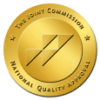Living with addiction is hard enough on its own. When you’re also dealing with anxiety, depression, PTSD, bipolar disorder, or unresolved trauma, it can feel like your life is always on fire and nobody’s seeing the whole picture. You might’ve tried rehab that focused only on drugs or alcohol. Maybe you saw a therapist who treated your mental health, but didn’t know how to handle cravings, withdrawal, or relapse.
That gap is exactly where Dual Diagnosis Treatment in Tennessee comes in. Dual diagnosis means treating mental health and addiction at the same time, with one team and one integrated plan. [1] At Tennessee Detox Center, clients receive mental health and addiction treatment in Tennessee that considers both sides of what you’re going through, not just the loudest part in the moment.
Whether you’re struggling with PTSD and addiction, anxiety and addiction, depression and addiction, bipolar symptoms and addiction, or long-term trauma tied to substance use, you don’t have to keep bouncing between providers or trying to figure it out alone.
Dual diagnosis care brings everything under one roof, from medical detox to inpatient and step-down programs like PHP and IOP, so your treatment actually lines up with how your brain and body work in real life.
If you’ve ever thought, “When my mental health gets bad, my using gets worse,” or “When I try to quit, my symptoms explode,” you’re exactly the kind of person dual diagnosis is designed for.

What Is Dual Diagnosis Treatment?
“Dual diagnosis” or “co-occurring disorders” is the term for people who have both a substance use disorder and at least one mental health condition. [2] That can look like:
- Drinking or using drugs to numb PTSD symptoms after trauma
- Using pills, alcohol, or weed to take the edge off anxiety and panic
- Turning to substances when depression makes it hard to get out of bed
- Fueling bipolar highs or trying to soften the crash with alcohol or drugs
- Numbing deep trauma with anything that helps you feel less
On paper, these are separate diagnoses. In real life, they feed each other. When mental health symptoms flare, cravings usually spike. When you’re using heavily, anxiety, depression, mood swings, paranoia, and intrusive memories often get worse.
That’s why trying to treat only addiction or only mental health rarely sticks. You don’t fix one while ignoring the other, at least not for long.
How mental health and addiction interact
Here’s what usually happens with co-occurring disorders:
- You start using alcohol or drugs to cope with stress, trauma, or symptoms.
- The relief is short-term, so you need more to get the same effect.
- Over time, the substances actually increase anxiety, depression, irritability, or mood swings.
- Your life gets more chaotic, which adds more stress and more mental health symptoms.
- You feel ashamed, overwhelmed, or “broken,” and using becomes the easiest way to shut it all off.
This loop is why PTSD and addiction treatment Tennessee, anxiety and addiction treatment Tennessee, depression and addiction treatment Tennessee, bipolar and addiction treatment Tennessee, and trauma and addiction treatment Tennessee can’t just be “rehab as usual.” You need people who understand how all these pieces fit together.
What makes dual diagnosis treatment different
A true dual diagnosis program doesn’t treat you like you have two separate problems that happen to exist in the same body. Instead, it:
- Uses one integrated treatment plan for mental health and substance use
- Pairs therapy and skill-building with careful medication management
- Watches how changes in one area affect the other
- Plans your care across levels, from detox to inpatient to PHP and IOP dual diagnosis treatment in Tennessee
In dual diagnosis treatment, your therapist, medical provider, and psychiatric provider talk to each other. Your coping skills are picked with both cravings and symptoms in mind. Your medications are chosen and adjusted knowing your full history, not just one piece of it.
Dual diagnosis isn’t a “special” kind of addiction treatment. It’s what addiction and mental health treatment should look like when someone’s dealing with both.
Dual Diagnosis in Tennessee: How It Works at Tennessee Detox Center
At Tennessee Detox Center, dual diagnosis is built into the way treatment runs, not added on at the last minute. From the first call through aftercare, the goal is to stabilize your body, support your mind, and set you up for long-term recovery, not just a short break from using.
Step 1: Comprehensive assessment and diagnosis
Everything starts with a detailed assessment. That usually includes:
- Medical history and physical exam
- Substance use history, including what you use, how often, and any prior withdrawal issues
- Mental health history, including any past diagnoses like anxiety, depression, bipolar disorder, PTSD, ADHD, or personality disorders
- Trauma history, when you’re ready to share it
- Current symptoms, such as panic attacks, intrusive memories, sleep problems, mood swings, racing thoughts, or suicidal thoughts
- Safety and risk assessment, especially around self-harm, overdose, and psychosis
This isn’t just paperwork. The assessment shapes your entire plan for dual diagnosis treatment in Tennessee, including whether you need medical detox first, which level of care makes sense, and what kind of therapy and medications are likely to help.
Step 2: Medically supervised detox when you need it
Many people who need dual diagnosis care also need detox, especially if they’re withdrawing from alcohol, benzodiazepines, or opioids. At Tennessee Detox Center, medical detox is designed to stabilize you before you move deeper into mental health and addiction treatment.
During detox, the team will:
- Monitor your vital signs and withdrawal symptoms
- Use medications when appropriate to reduce discomfort and lower risk
- Watch closely for changes in mood, anxiety, agitation, or confusion
- Start gently addressing sleep, nutrition, and hydration
- Keep an eye on how psychiatric medications and withdrawal symptoms interact
Detox is not the entire solution, but it’s a crucial first step. When your body’s in crisis, it’s almost impossible to do deep work on trauma, anxiety, depression, or bipolar symptoms. Medical detox helps get you stable enough to benefit from inpatient dual diagnosis treatment in Tennessee or another level of care.
Step 3: Dual diagnosis inpatient and residential treatment in Tennessee
Once detox is complete, many clients step into dual diagnosis inpatient treatment in Tennessee or dual diagnosis residential treatment in Tennessee. This is where the bulk of the work happens early on, while you have 24/7 support and a structured environment.
In inpatient or residential dual diagnosis treatment, you can expect:
- Daily structure
- Individual therapy sessions focused on both mental health and substance use.
- Group therapy that covers relapse prevention, coping skills, and education about PTSD, anxiety, depression, bipolar disorder, and trauma
- Check-ins with medical and psychiatric providers for medication management and symptom monitoring
- Integrated treatment planning
- Your treatment team meets regularly to talk about how you’re responding
- Both cravings and mental health symptoms are tracked and addressed together
- Adjustments are made when something isn’t working, instead of just waiting it out
- A safe, contained space
- No access to drugs or alcohol
- Immediate support when you’re triggered, overwhelmed, or tempted to leave
- Staff who understand that emotional outbursts, shutting down, or mood swings may be part of your symptoms, not “bad behavior.”
This level of care is especially important for people dealing with intense symptoms, like severe depression, frequent panic attacks, suicidal thoughts, or destabilized bipolar episodes. Trying to fix all of that while you’re still at home, surrounded by triggers, usually isn’t realistic.
Step 4: PHP dual diagnosis treatment in Tennessee
When you’re stable enough not to need 24/7 supervision but still need a lot of structure, a PHP dual diagnosis treatment Tennessee program can be the right next step.
PHP usually looks like:
- Several hours of treatment a day, most days of the week
- A mix of individual therapy, group therapy, and family or couples sessions when appropriate
- Ongoing psychiatric care for medication adjustment and monitoring
- Continued work on skills like distress tolerance, emotional regulation, grounding, and relapse prevention
In PHP, you start to test your skills in the “real world” more often. You might sleep at home or in a sober living environment, then come back each day for intensive support. It’s a bridge between inpatient care and full independence, which is often where people with dual diagnosis need the most help.
Step 5: IOP and outpatient dual diagnosis treatment Tennessee
As you stabilize and your coping skills grow, you may move into an IOP dual diagnosis treatment Tennessee program or other outpatient dual diagnosis treatment Tennessee options.
IOP typically includes:
- Several group sessions per week
- Regular individual therapy
- Check-ins for medication management and symptom monitoring
- Strong focus on relapse prevention and applying skills while you work, go to school, or care for family
The big difference in IOP is flexibility. You’re living more of your everyday life while still having consistent support. For many people with co-occurring disorders, this step-down approach is critical. You aren’t going from 24/7 support straight back into total independence, which often leads to relapse.
Step 6: Aftercare and long-term support
Dual diagnosis doesn’t disappear the day you leave a program. That’s why Tennessee Detox Center helps plan:
- Ongoing therapy and psychiatry appointments
- Support groups or 12-step / recovery community involvement
- Relapse prevention and crisis plans
- Connection with local providers across Tennessee so your mental health and addiction treatment in Tennessee continues close to home.
From the first call through aftercare, the goal is the same: treat addiction and mental health together so you’re not constantly sacrificing one for the other.

What Are the Benefits of Dual Diagnosis Treatment?
When you live with both mental health symptoms and addiction, “regular” rehab or therapy often feels like a half-solution. [3] You might get sober for a bit, but your anxiety or depression slams you. Or your mood stabilizes, but you’re still white-knuckling cravings. Dual diagnosis treatment is designed to break that pattern so you can actually move forward.
Treating the whole picture, not just one piece
The biggest benefit is simple: you’re treated like a whole person instead of a collection of separate problems.
In dual diagnosis treatment, your team looks at:
- What you’re using and why
- How anxiety, depression, PTSD, bipolar disorder, or trauma show up day to day
- How your symptoms and substance use trigger each other
- What actually helps you feel safer and more stable, not just what looks good on paper
Integrated care like this is exactly what experts recommend for co-occurring substance use and mental health conditions, because treating one without the other tends to lead to poorer outcomes and more hospitalizations.
Lower relapse risk and more stable recovery
When mental health symptoms don’t get real treatment, relapse risk stays high. If panic, flashbacks, insomnia, racing thoughts, or mood crashes are still raging in the background, it’s very hard to stay sober long-term.
With proper mental health and addiction treatment Tennessee, you get:
- Tools to manage cravings and high-risk situations
- Skills for coping with anxiety, depression, PTSD, or bipolar symptoms without reaching for substances
- Medication support when it’s appropriate, with careful monitoring
- A team that adjusts your plan when something isn’t working, instead of blaming you for “lack of motivation.”
Research consistently shows that when co-occurring disorders are treated together, people are more likely to stay engaged in care and less likely to go back to heavy use.
Better safety and crisis support
For a lot of people, a crisis isn’t just about withdrawal. It’s also about:
- Suicidal thoughts or self-harm urges
- Aggression or agitation during manic or mixed episodes
- Dissociation, flashbacks, or severe anxiety
- Psychotic symptoms like paranoia or hallucinations
In dual diagnosis inpatient treatment Tennessee and dual diagnosis residential treatment Tennessee, staff are trained to watch for both withdrawal complications and psychiatric emergencies. That means:
- Faster response if you’re in danger of harming yourself or someone else
- Safer medication adjustments
- More accurate decisions about when it’s really OK to step down to PHP, IOP, or outpatient dual diagnosis treatment Tennessee
Evidence-based tools, not guesswork
Quality dual diagnosis programs rely on therapies and approaches backed by research, not just “what we’ve always done.” These can include:
- Cognitive behavioral therapy (CBT) for negative thought patterns and behavior loops
- Dialectical behavior therapy (DBT) skills for emotion regulation and distress tolerance
- Trauma-informed therapy for PTSD and complex trauma
- Group therapy for connection, feedback, and practice using new skills
- Medication management for mood, anxiety, sleep, and stabilization
If you want to dig deeper into how evidence-based practices work with co-occurring disorders, resources from organizations like the National Institute of Mental Health (NIMH), SAMHSA, and the National Institute on Drug Abuse (NIDA) are a good place to start. [4]
The bottom line: dual diagnosis treatment provides a coordinated plan rather than patchwork care. That’s what most people actually need when mental health and addiction are tangled together.
Your journey toward healing begins today.
Why Dual Diagnosis Treatment Is Important
Millions of adults live with both a substance use disorder and at least one mental health condition. [5] It’s not some unusual edge case. It’s one of the most common patterns providers see.
That means if you’re dealing with alcohol or drug use on top of anxiety, depression, PTSD, bipolar disorder, or trauma, you’re not “too complicated.” You’re exactly the kind of person dual diagnosis treatment was built for.
If you only address the addiction, you might stop using for a while, but the reasons you started often don’t go away:
- Panic attacks that come out of nowhere
- Crushing depression or emptiness
- Intrusive memories or nightmares after trauma
- Rapid mood swings or energy changes
- Constant tension, worry, or irritability
When those symptoms flare, and there’s no real plan to manage them, the fastest relief is usually the same thing you’ve always used: alcohol, pills, weed, stimulants, or something else. That’s how people end up back in detox or rehab over and over.
Treating both mental health and addiction together doesn’t guarantee you’ll never struggle again, but it gives you more options than “white-knuckle it or relapse.”
It also works the other way. Some people land in mental health treatment that never really addresses the role substances play in their symptoms.
- Alcohol can worsen depression and anxiety.
- Stimulants can destabilize mood, trigger paranoia, and wreck sleep.
- Benzodiazepines can increase dependence and rebound anxiety when they’re misused.
If treatment never tackles your substance use honestly, or never looks at PTSD and addiction, anxiety and addiction, depression and addiction, bipolar and addiction, or trauma and addiction together, you’re left trying to manage mental health symptoms while something is constantly poking the wound.
Co-occurring disorders come with higher risks:
- More medical complications and hospitalizations
- Higher risk of overdose and accidental injury
- Higher suicide risk when severe depression, trauma, or bipolar disorder combine with substance use
That’s another reason dual diagnosis treatment in a supervised setting matters. When you’re in dual diagnosis inpatient treatment Tennessee or stepping down into PHP and IOP dual diagnosis treatment Tennessee with a qualified team, there’s more support around you during the most unstable parts of recovery.
Conditions Commonly Treated in Dual Diagnosis Programs
No two people show up with the same mix of symptoms, history, and substances. Still, there are patterns. Here’s how dual diagnosis treatment in Tennessee usually shows up for some of the most common combinations.
-
PTSD and addiction treatment in Tennessee
Trauma changes how your brain processes threat, safety, and memory. For some people, substances become the only thing that makes nightmares quieter or flashbacks less intense, even if it’s only for a few hours.
Signs this might be you:
- You use to sleep or “shut your brain off.”
- You avoid places, people, or sounds that remind you of what happened.
- You feel on edge all the time, like something bad’s about to happen.
- You have sudden anger, panic, or numbness, and you reach for alcohol or drugs to manage it.
In PTSD and addiction treatment in Tennessee, you need more than basic relapse prevention. You need:
- A trauma-informed environment where staff don’t push you to tell your story before you’re ready
- Grounding and coping skills to handle triggers without using
- Therapy that helps you process trauma safely when the time’s right
A good dual diagnosis program respects your pace. It doesn’t force you into full trauma processing in week one while you’re still stabilizing from detox.
-
Anxiety and addiction treatment in Tennessee
Anxiety can make everyday life feel like walking around with a fire alarm going off in your head. Substances can seem like the only reliable off switch.
You might:
- Drink or use before social events to calm your nerves
- Use pills or weed to get through panic attacks or constant worry
- Feel like you can’t sleep without something in your system
The problem is that many substances, especially alcohol and stimulants, make anxiety worse long-term. Your nervous system stays jacked up, your sleep tanks, and you need more and more to feel “normal.”
In anxiety and addiction treatment in Tennessee, dual diagnosis care usually focuses on:
- CBT and other therapies that help you challenge worst-case thinking and avoidance
- Skill-building for panic, intrusive worry, or physical symptoms like racing heart and shortness of breath
- Medication options that treat anxiety without feeding addiction
- Gradual exposure to things you avoid, with support, so your life doesn’t keep shrinking
-
Depression and addiction treatment in Tennessee
Depression isn’t just “feeling sad.” It can show up as numbness, exhaustion, irritation, or a sense that nothing matters. Substances can temporarily lift your mood or help you stop caring, which is why they’re so seductive.
You might notice:
- You drink or use most when you feel empty, hopeless, or stuck
- You lose interest in things you used to enjoy
- You struggle to get out of bed or keep up with basic responsibilities
- Suicidal thoughts creep in, especially when you’re coming down or hungover
In depression and addiction treatment in Tennessee, dual diagnosis care needs to address both the biology and the story you’re telling yourself about your life.
That often includes:
- Antidepressant or mood-supportive medications, when they’re appropriate, monitored carefully alongside your substance use history
- Therapy that targets isolation, shame, and hopeless thinking
- Behavioral activation, which basically means building small, doable actions into your day, even when you don’t feel like it
If your depression’s been brushed off as “just withdrawal” or your substance use’s been dismissed as “just self-medicating,” you probably haven’t had real dual diagnosis care yet.
-
Bipolar and addiction treatment in Tennessee
With bipolar disorder, mood episodes can be intense. Mania or hypomania might come with high energy, racing thoughts, risky behavior, and little need for sleep. Depressive episodes can be crushing. Substances often get pulled into both phases.
You might:
- Use stimulants or alcohol during highs to push things even further
- Reach for sedatives or alcohol to slow your mind down or finally sleep
- Use anything you can find when you crash into a depressive episode
Substances can also trigger or worsen mood episodes, so it’s very easy for things to spiral.
In bipolar and addiction treatment Tennessee, your team has to take medication and structure seriously. That usually means:
- Mood-stabilizing medications and careful monitoring for side effects
- Education about how sleep, light, stress, and substances affect your mood cycles
- A structured daily routine that supports stability rather than chaos
- Clear relapse prevention planning around early warning signs of mania and depression
Trying to manage bipolar disorder without touching the addiction piece, or trying to get sober without respecting bipolar patterns, almost always leads to more flare-ups.
-
Trauma and addiction treatment in Tennessee
Not everyone with trauma meets full criteria for PTSD, but that doesn’t mean the impact isn’t real. Childhood neglect, emotional abuse, spiritual abuse, domestic violence, medical trauma, and sudden loss can all shape how you see yourself and the world.
If you grew up believing you were “too much,” “not enough,” or only safe when you were pleasing others, substances can become a way to numb out the constant tension or shame.
In trauma and addiction treatment Tennessee, dual diagnosis care focuses on:
- Making sure the environment itself is safe and predictable
- Helping you notice how your body reacts to stress and triggers
- Building skills for grounding, self-soothing, and boundaries
- Gradually working through painful experiences without re-traumatizing you
Again, the goal isn’t to squeeze your whole life story into a few sessions. It’s to give you enough stability, skills, and support so you don’t have to use alcohol or drugs to survive your own mind.
-
Dual Diagnosis and Alcohol Use Disorder in Tennessee
For many individuals, alcohol addiction does not exist in isolation. A significant percentage of people struggling with alcohol use disorder also experience co-occurring mental health conditions—a clinical presentation known as dual diagnosis.
In many cases, alcohol becomes a form of self-medication. Someone with anxiety may drink to quiet racing thoughts. A person living with depression may use alcohol to temporarily numb emotional pain. Individuals with trauma histories may drink to reduce hypervigilance or intrusive memories.
While alcohol may provide short-term relief, it ultimately worsens mental health symptoms. Over time, this creates a destructive cycle: mental health symptoms fuel drinking, and drinking intensifies psychiatric instability.
Therapies and Modalities Used in Dual Diagnosis Treatment
The label “dual diagnosis” doesn’t fix anything by itself. What actually helps is the work you do day after day with a team that knows how to treat both sides of what you’re dealing with. At Tennessee Detox Center, mental health and addiction treatment are woven together, not split into separate tracks that never line up.
Here’s what that looks like in practice.

Individual therapy for co-occurring disorders
In one-on-one sessions, you get space to be honest about what’s really going on without worrying about saying the “right” thing.
Your therapist will help you:
- Map out the loop between your symptoms and your substance use
- Notice patterns in your thoughts, emotions, and behavior
- Build coping skills that work when cravings hit and when anxiety, depression, or trauma symptoms spike
- Set realistic goals for both sobriety and mental health
Evidence-based approaches that often show up in dual diagnosis work include:
- Cognitive behavioral therapy (CBT): Helps you catch unhelpful thoughts like “I’ll always be this way” or “I can’t handle this without using,” then replace them with more accurate ones so your behavior can actually shift.
- Dialectical behavior therapy (DBT) skills: Focuses on emotion regulation, distress tolerance, and building a life that feels worth staying sober for.
- Trauma-informed and trauma-focused therapies: Help you process what happened at a pace that doesn’t overwhelm your nervous system.
You’re not handed a random list of coping skills. Your therapist works with you to figure out what fits your personality, symptoms, and real life.

Group therapy and psychoeducation
Group can feel intimidating at first, especially if you’re used to keeping everything to yourself. Over time, it’s usually one of the most powerful parts of dual diagnosis treatment.
In groups, you can expect:
- Education about how PTSD, anxiety, depression, bipolar disorder, and trauma interact with addiction
- Relapse prevention work that actually accounts for your mental health triggers, not just “people, places, and things.”
- Skills practice for grounding, communication, boundary-setting, and emotion regulation
- Peer support from people who understand what it’s like when your brain and your substance use are fighting each other
You don’t have to share your deepest secrets on day one. You can start by listening, then speak up when you’re ready.

Family therapy and support
Mental health and addiction don’t hit just one person. They land on families, too. If it makes sense for your situation, dual diagnosis treatment may include family sessions that:
- Teach loved ones what dual diagnosis really means
- Help them understand why “just stop” was never a solution
- Set boundaries and expectations for life after treatment
- Give everyone a chance to talk about how they’ve been affected
Family work isn’t about blame. It’s about getting everyone on the same page so home doesn’t undo the progress you’re making in treatment.
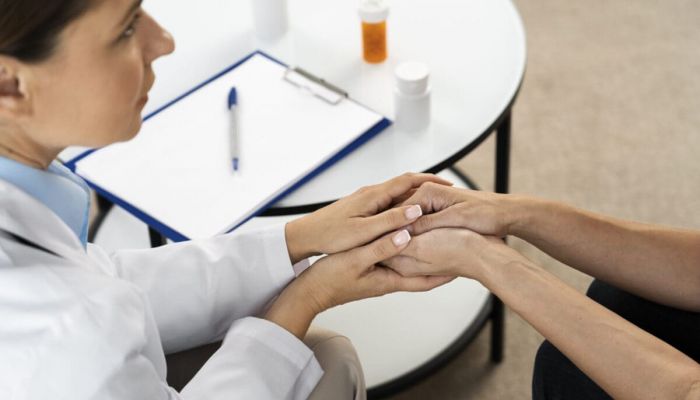
Medication management and psychiatric care
For a lot of people, medication is a key part of depression and addiction treatment Tennessee, anxiety and addiction treatment Tennessee, bipolar and addiction treatment Tennessee, or PTSD and addiction treatment Tennessee.
In dual diagnosis treatment, psychiatric care usually includes:
- A full review of your current meds and substance use
- Honest conversations about what’s helped, what hasn’t, and what you’re scared of
- Careful prescribing with your addiction history in mind
- Regular check-ins to tweak doses or change meds if side effects show up or symptoms don’t improve
You’re not pushed to take anything you’re not comfortable with, and you’re not left to manage complicated meds on your own either.

Holistic and supportive services
Alongside therapy and medication, you’ll often work on:
- Sleep routines that support mood stability and sobriety
- Nutrition and hydration, especially after detox
- Light movement or exercise when your body’s ready
- Mindfulness, breathing, or grounding practices to help calm your nervous system
These pieces don’t replace treatment, but they make it a lot easier to handle cravings and symptoms without going straight back to alcohol or drugs.
If you want to read more about evidence-based therapies for co-occurring disorders, organizations like the National Institute on Drug Abuse (NIDA), the National Institute of Mental Health (NIMH), and SAMHSA offer good overviews.
Insurance and Paying for Dual Diagnosis Treatment in Tennessee
Money is one of the main reasons people delay getting help. The good news is that many insurance plans have to cover mental health and addiction services at levels similar to medical and surgical care because of federal parity laws. The details still vary a lot by plan, though, which is why benefit checks matter.
Here’s how coverage for dual diagnosis treatment in Tennessee usually works.
How insurance typically approaches mental health and addiction treatment Tennessee
Most commercial plans recognize substance use disorders and many mental health conditions as medical issues, not personal failures. That means your policy may include coverage for:
- Dual diagnosis inpatient and residential treatment
- PHP dual diagnosis treatment Tennessee
- IOP dual diagnosis treatment Tennessee
- Medication management and outpatient therapy after you step down
Your exact benefits depend on:
- Whether Tennessee Detox Center is in-network or out-of-network
- Your deductible and out-of-pocket maximum
- Any preauthorization requirements
- Day or visit limits for certain levels of care
Instead of trying to decode all that on your own, you can have the admissions team verify your benefits and explain what your plan is likely to cover before you decide anything.
Aetna dual diagnosis treatment Tennessee
If you have Aetna, there’s a decent chance your plan offers coverage for co-occurring mental health and addiction treatment, including higher levels of care when they’re medically necessary.
In Aetna dual diagnosis treatment in Tennessee, coverage might include:
- Inpatient dual diagnosis stays
- PHP or IOP dual diagnosis programs
- Outpatient therapy and psychiatry for ongoing mental health and addiction support
The specifics vary by employer plan and metal tier, so a benefits check is the only way to know for sure what Aetna will pay and what you’ll owe.
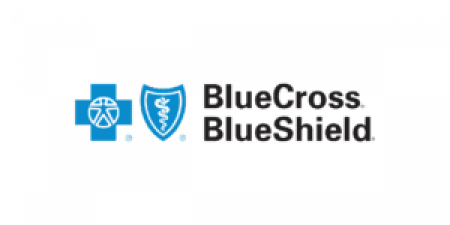
BCBS dual diagnosis treatment Tennessee
Blue Cross Blue Shield is common across Tennessee, and many BCBS plans cover both mental health and substance use treatment.
For BCBS dual diagnosis treatment tennessee, your policy may help with:
- Dual diagnosis residential treatment Tennessee when you need round-the-clock care
- PHP and IOP dual diagnosis treatment in Tennessee, while you step back into regular life
- Follow-up outpatient services
Again, the details depend on your particular plan, including any preauthorization rules and whether Tennessee Detox Center is considered in-network.
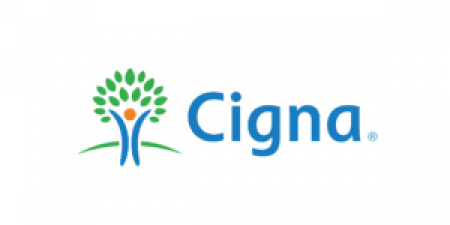
Cigna dual diagnosis treatment Tennessee
Cigna plans often include behavioral health benefits that can apply to Cigna dual diagnosis treatment in Tennessee.
Coverage may include:
- Inpatient dual diagnosis treatment in Tennessee, when you meet clinical criteria
- Structured PHP and IOP programs
- Ongoing therapy and medication management once you’re back home
The admissions team can contact Cigna, review your benefits, and help you understand any deductibles, co-pays, or prior authorization requirements.

Anthem and Optum dual diagnosis treatment Tennessee
If you carry Anthem or have a plan managed by Optum, you may also have coverage for dual diagnosis care.
- Anthem dual diagnosis treatment in Tennessee benefits can include inpatient, PHP, and IOP, depending on your plan.
- Optum dual diagnosis treatment in Tennessee often manages behavioral health benefits for employer plans, which may cover a full continuum of care from detox through outpatient care.
Because each plan is different, it’s important to have someone walk you through:
- What levels of care are covered
- How many days or sessions you’re approved for at a time
- What you’ll pay up front and what will be billed later
How Tennessee Detox Center helps you navigate costs
You shouldn’t have to choose between staying sick and blowing up your finances without even knowing what you’d be billed.
When you reach out, the team can:
- Take your insurance information and verify benefits for dual diagnosis treatment
- Explain, in plain language, what your plan is likely to cover
- Go over deductibles, co-pays, and estimated out-of-pocket costs
- Talk through payment options for any remaining balance
The goal isn’t to pressure you into treatment you can’t afford. It’s to give you clear, upfront information so you can make a real decision about getting help for your mental health and addiction at the same time.
Start Dual Diagnosis Treatment in Tennessee Today
If you’ve read this far, you probably already know something needs to change. You might not know exactly what that looks like yet, and that’s fine. You don’t have to have every answer before you reach out.
Here’s what you do need to know:
- You’re not broken because you live with addiction and a mental health condition at the same time
- You’re not “too much” or “too complicated” for help
- You don’t have to choose between treating your mental health or your substance use
Dual Diagnosis Treatment in Tennessee is built for people whose lives don’t fit into neat boxes. It’s for people who’ve tried to quit and watched their anxiety, depression, PTSD, bipolar symptoms, or trauma responses explode. It’s for people who’ve tried therapy and felt like nobody really understood how bad their cravings were.
At a Tennessee detox center that understands dual diagnosis, you can:
- Detox safely when you need it
- Step into dual diagnosis inpatient treatment Tennessee or dual diagnosis residential treatment in Tennessee when things are unstable
- Move into PHP dual diagnosis treatment Tennessee, or IOP dual diagnosis treatment, Tennessee, as you stabilize
- Keep working on both mental health and addiction instead of dropping one to focus on the other
If you’re ready to explore what that might look like for you, the next step is simple:
- Call and talk honestly about what’s been going on
- Let the team check your insurance and explain your options
- Ask every question you have about detox, mental health care, safety, and length of stay
You don’t have to walk into this alone or guess which kind of help you need. Reach out, get clear information, and take the next step toward real mental health and addiction treatment in Tennessee that actually fits your life.
Dual Diagnosis Treatment FAQ
The most frequently seen co-occurring disorders include:
- Major depressive disorder
- Generalized anxiety disorder
- PTSD
- Bipolar disorder
- Panic disorder
- ADHD
- Schizophrenia
A “co-occurring disorder” refers generally to the presence of mental health symptoms with substance misuse. In contrast, a “dual diagnosis” means a formal diagnosis of a mental health disorder alongside an addiction issue. Both require integrated treatment for long‑term healing.
Treating only one issue—either addiction or mental health—can increase relapse risk and worsen outcomes. Integrated care provides a cohesive plan, addressing both conditions concurrently under a unified strategy.
Initial Assessment
A thorough evaluation—including medical, psychiatric, and substance-use history—is conducted during detox and inpatient phases to confirm diagnoses and tailor the treatment plan.
Integrated Therapy & Care
Licensed addiction specialists and mental health professionals collaborate daily—delivering individual therapy, family sessions, small groups, and medication management as needed.
Lifestyle & Holistic Support
Expect catered meals, luxury bedrooms, gaming areas, weekly outings, yoga, and more to support holistic wellness alongside clinical treatment.
Treatment length varies based on severity, diagnoses, and recovery goals. Tennessee Detox Center offers both medical detox and inpatient programs, with transition to outpatient care, partial hospitalization, or aftercare as appropriate.
Yes—Tennessee Detox Center accepts most PPO/EPO employer-sponsored insurance plans. They also offer self-pay and financing options. A no‑obligation, confidential insurance verification is available during intake.
According to the 2023 National Survey on Drug Use and Health, approximately 21.5 million U.S. adults experienced both a mental health condition and substance use disorder in the previous year. Studies also show that individuals with alcohol use disorder are nearly four times more likely to experience clinical depression.
-
Fully integrated medical and clinical team treating both addictions and mental health.
-
High staff-to-client ratio for personalized care.
-
Luxury facility amenities (private chef, comfortable rooms, holistic therapies).
-
Structured family support, weekly outings, therapy in individual and small-group settings.
Call them directly at 615‑488‑5311 or fill out the confidential online contact form for a free consultation or insurance benefits verification.
Dual Diagnosis Treatment at Tennessee Detox Center
Dual diagnosis treatment is essential for individuals facing both addiction and underlying mental health disorders. Many people struggling with substance use disorder also experience co-occurring conditions such as PTSD, depression, anxiety, bipolar disorder, or trauma-related disorders. Without integrated care, relapse risk remains high.
Tennessee Detox Center provides comprehensive dual diagnosis treatment in Tennessee, offering medically supervised detox, psychiatric stabilization, and evidence-based therapy under one roof. Our program treats alcohol addiction, opioid use disorder, fentanyl dependence, methamphetamine abuse, benzodiazepine addiction, and polysubstance use alongside mental health challenges.
Clients receive individualized treatment plans that include medication management, trauma-informed counseling, CBT, group therapy, relapse prevention strategies, and long-term recovery planning. By addressing both addiction and mental illness simultaneously, dual diagnosis care improves emotional stability and sustainable sobriety.
If you or a loved one is searching for dual diagnosis rehab in Tennessee, co-occurring disorder treatment near Nashville, or inpatient mental health and addiction care, Tennessee Detox Center is here to help. Call today for confidential support and free insurance verification.
The information presented on Tennessee Detox Center website pages is intended solely for general educational and informational purposes related to addiction treatment, medical detoxification, rehabilitation services, and recovery support. This content is not intended to serve as medical advice, diagnosis, treatment planning, or a substitute for professional medical care. Substance use disorders are complex medical conditions that require individualized evaluation by qualified healthcare professionals.
Detoxification and rehabilitation needs vary widely based on the type of substance used, duration and frequency of use, physical health, mental health history, co-occurring disorders, and other individual factors. Information discussing detox timelines, withdrawal symptoms, medications, or treatment approaches is generalized and may not apply to every individual. Treatment decisions should always be made in consultation with licensed physicians, addiction specialists, or behavioral health providers.
If you or someone you love is experiencing a medical emergency — including but not limited to overdose, seizures, loss of consciousness, breathing difficulties, chest pain, suicidal thoughts, or violent behavior — call 911 immediately or go to the nearest emergency room. Tennessee Detox Center does not provide emergency medical services through this website, and no online content should delay urgent medical intervention.
Attempting to detox from alcohol, opioids, benzodiazepines, or other substances without medical supervision can be dangerous and potentially life-threatening. Withdrawal symptoms can be unpredictable and severe. Any detox-related information provided is for awareness only and should never replace professional medical oversight.
Information regarding insurance coverage, treatment costs, or payment options is provided for general guidance purposes only. Insurance benefits vary by carrier, policy, state regulations, and medical necessity determinations. Coverage information is not guaranteed and may change without notice. Tennessee Detox Center strongly encourages individuals to contact our admissions team directly to verify insurance benefits, eligibility, and coverage prior to making treatment decisions.
While reasonable efforts are made to ensure accuracy, Tennessee Detox Center makes no warranties regarding the completeness or timeliness of website content. Healthcare regulations, clinical standards, and insurance policies evolve regularly. Reliance on any information provided is at your own risk.
This website may include references or links to third-party resources for informational purposes. Such references do not constitute endorsements. Tennessee Detox Center is not responsible for external content, services, or policies.
Use of this website does not establish a provider-patient relationship. Contacting Tennessee Detox Center does not guarantee admission or treatment. Recovery outcomes vary and are never guaranteed.
The content available on Tennessee Detox Center pages is designed to provide educational information related to addiction, detoxification, rehabilitation, and recovery. This information should not be interpreted as professional medical advice or treatment recommendations.
Addiction treatment is highly individualized. Detox and rehab needs vary significantly based on health history, substance use patterns, and mental health considerations. Information provided is general and may not apply to all individuals.
If an emergency arises — such as overdose, severe withdrawal symptoms, or immediate danger — call 911 without delay. Online resources are not a substitute for emergency medical care.
Medical detox should always be conducted under professional supervision. Attempting detox without medical oversight can be dangerous.
Insurance information is provided as general guidance only. Coverage varies by plan and carrier. Tennessee Detox Center encourages all individuals to verify benefits directly with admissions staff.
Recovery outcomes are not guaranteed. Treatment effectiveness depends on many factors including engagement, clinical needs, and aftercare support.
References to external resources do not imply endorsement. Tennessee Detox Center is not responsible for third-party content.
Website use does not establish a provider-patient relationship.
Substance Abuse and Mental Health Services Administration. (2023). Key substance use and mental health indicators in the United States: Results from the 2022 National Survey on Drug Use and Health (HHS Publication No. PEP23-07-01-006). Center for Behavioral Health Statistics and Quality, Substance Abuse and Mental Health Services Administration. https://www.samhsa.gov/data/report/2022-nsduh-annual-national-report
Substance Abuse and Mental Health Services Administration. (n.d.). Integrated treatment for co-occurring disorders evidence-based practices (EBP) KIT. https://store.samhsa.gov/product/Integrated-Treatment-for-Co-Occurring-Disorders-Evidence-Based-Practices-EBP-KIT/SMA08-4367
Blanco, C., Alegría, M., Liu, S.-M., Secades-Villa, R., Sugaya, L., Davies, C., & Nunes, E. V. (2012). Differences among major depressive disorder with and without co-occurring substance use disorders and substance-induced depressive disorder: Results from the National Epidemiologic Survey on Alcohol and Related Conditions. The Journal of Clinical Psychiatry, 73(6), 865–873. https://doi.org/10.4088/JCP.11m07191
National Institute on Drug Abuse. (2020). Common comorbidities with substance use disorders research report. National Institutes of Health, U.S. Department of Health and Human Services. https://nida.nih.gov/publications/research-reports/common-comorbidities-with-substance-use-disorders/introduction
Koob, G. F., & Volkow, N. D. (2016). Neurobiology of addiction: A neurocircuitry analysis. The Lancet Psychiatry, 3(8), 760–773. https://doi.org/10.1016/S2215-0366(16)00104-8
Mueser, K. T., Noordsy, D. L., Drake, R. E., & Fox, L. (2009). Integrated treatment for dual disorders: A guide to effective practice. The Guilford Press.

Medically Reviewed By:
Dr. Vahid Osman, M.D.
Board-Certified Psychiatrist and Addictionologist
Dr. Vahid Osman is a Board-Certified Psychiatrist and Addictionologist who has extensive experience in skillfully treating patients with mental illness, chemical dependency and developmental disorders. Dr. Osman has trained in Psychiatry in France and in Austin, Texas. Read more.

Clinically Reviewed By:
Josh Sprung, L.C.S.W.
Board Certified Clinical Social Worker
Joshua Sprung serves as a Clinical Reviewer at Tennessee Detox Center, bringing a wealth of expertise to ensure exceptional patient care. Read More
The Joint Commission – The Gold Seal of Approval® signifies that Tennessee Detox Center meets or exceeds rigorous performance standards in patient care, safety, and quality. It reflects a commitment to continuous improvement and clinical excellence.
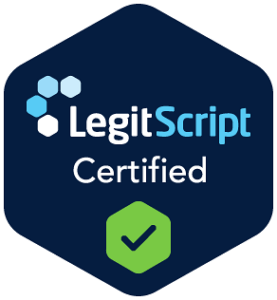
LegitScript Certified – Confirms that Tennessee Detox Center operates in full compliance with laws and regulations, and meets high standards for transparency and accountability in addiction treatment marketing.
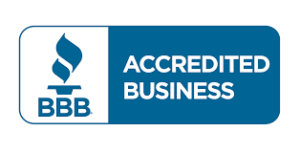
BBB Accredited – Demonstrates ethical business practices, commitment to customer satisfaction, and a trusted reputation within the community.
Psychology Today Verified – Indicates that Tennessee Detox Center is listed on Psychology Today, a trusted directory for verified mental health providers and treatment centers.
HIPAA Compliant – Ensures all patient health information (PHI) is protected and managed in accordance with strict federal privacy and data security standards.
ASAM Member – Tennessee Detox Center is a proud member of the American Society of Addiction Medicine (ASAM), reflecting a commitment to science-driven and evidence-based treatment standards.

Rutherford County Chamber of Commerce – Membership signifies active participation in the local community and support for regional growth and civic collaboration.
Get Family Support Now
Supporting Families Through Recovery
We understand addiction affects the whole family. Our comprehensive family program helps rebuild trust and restore relationships.
Weekly Family Therapy Sessions
Educational Workshops
Support Groups
Communication Skills Training
-
Addiction Group. (n.d.). Tennessee drug and alcohol statistics. Retrieved July 28, 2025, from https://www.addictiongroup.org/tennessee/drug-statistics/
-
Substance Abuse and Mental Health Services Administration (SAMHSA). (2023). 2023 ICCPUD state report: Underage drinking prevention – Tennessee. U.S. Department of Health and Human Services. Retrieved from https://library.samhsa.gov/sites/default/files/tennessee-iccpud-state-report-2023.pdf
-
Tennessee Alcoholic Beverage Commission. (2024). Report to prevent underage drinking, drunk driving, and other harmful uses of alcohol (PC 961). State of Tennessee. Retrieved from https://www.tn.gov/content/dam/tn/abc-documents/abc-documents/PC-961-2024-Report-to-Prevent-Underage-Drinking-Drunk-driving-and-Other-Harmful-Uses-of-Alcohol.pdf
-
[2] https://www.samhsa.gov/substance-use/treatment/co-occurring-disorders
-
[4] https://www.nimh.nih.gov/health/topics/substance-use-and-mental-health
-
[5] https://nida.nih.gov/research-topics/co-occurring-disorders-health-conditions
-
National Institute on Alcohol Abuse and Alcoholism (NIAAA). (2012). Alcohol withdrawal syndrome. In S. C. Merrill & B. S. Frances (Eds.), The management of alcohol use disorders: A practical guide for clinicians (NIH Publication No. 12–5191). National Center for Biotechnology Information. Retrieved from https://www.ncbi.nlm.nih.gov/books/NBK64119/

Medically Reviewed By:
Dr. Vahid Osman, M.D.
Board-Certified Psychiatrist and Addictionologist
Dr. Vahid Osman is a Board-Certified Psychiatrist and Addictionologist who has extensive experience in skillfully treating patients with mental illness, chemical dependency and developmental disorders. Dr. Osman has trained in Psychiatry in France and in Austin, Texas. Read more.

Clinically Reviewed By:
Josh Sprung, L.C.S.W.
Board Certified Clinical Social Worker
Joshua Sprung serves as a Clinical Reviewer at Tennessee Detox Center, bringing a wealth of expertise to ensure exceptional patient care. Read More
The Joint Commission – The Gold Seal of Approval® signifies that Tennessee Detox Center meets or exceeds rigorous performance standards in patient care, safety, and quality. It reflects a commitment to continuous improvement and clinical excellence.

LegitScript Certified – Confirms that Tennessee Detox Center operates in full compliance with laws and regulations, and meets high standards for transparency and accountability in addiction treatment marketing.

BBB Accredited – Demonstrates ethical business practices, commitment to customer satisfaction, and a trusted reputation within the community.
Psychology Today Verified – Indicates that Tennessee Detox Center is listed on Psychology Today, a trusted directory for verified mental health providers and treatment centers.
HIPAA Compliant – Ensures all patient health information (PHI) is protected and managed in accordance with strict federal privacy and data security standards.
ASAM Member – Tennessee Detox Center is a proud member of the American Society of Addiction Medicine (ASAM), reflecting a commitment to science-driven and evidence-based treatment standards.

Rutherford County Chamber of Commerce – Membership signifies active participation in the local community and support for regional growth and civic collaboration.
Get Family Support Now
Supporting Families Through Recovery
We understand addiction affects the whole family. Our comprehensive family program helps rebuild trust and restore relationships.
Weekly Family Therapy Sessions
Educational Workshops
Support Groups
Communication Skills Training
Hear directly from those who have walked the path to recovery. Our patients’ stories highlight the compassionate care, effective programs, and life-changing support they’ve experienced. Let their journeys inspire you as you take your first steps toward healing.










Thank you all so much!




















The facility itself is clean, well-maintained, and equipped with all the necessary amenities to provide a serene and supportive environment.
What truly stands out is the personalized approach to care. The team developed a treatment plan tailored to my specific needs, incorporating both medical and holistic therapies. This comprehensive approach not only addressed my physical withdrawal symptoms but also supported my mental and emotional well-being.
The counselors and therapists offer a range of therapies that helped me understand the root causes of my addiction and develop effective coping strategies. Group therapy sessions provided a safe space to share experiences and gain insights from others on similar journeys.
Overall, my experience with this medical detox program was life-changing. The compassionate and skilled staff, combined with the personalized treatment approach, provided me with the foundation I needed for a successful recovery. I highly recommend this facility to anyone seeking a safe and supportive environment for detox and recovery.
But it's the people who make this place truly special. The staff, they've been there, they understand the struggle. No judgment, just support, encouragement, and a genuine desire to help you heal. They treated me like an old friend, even though I was just visiting for my buddy.
They've got a whole range of therapies to help you on your journey – individual counseling, group sessions, and even a fitness center to get you moving again. It's not just about detox. It's about rebuilding your life from the ground up.
My friend, the owner, he's living proof that this place works. He poured his heart into creating a haven for those seeking recovery, and his passion shines through in every detail.
So, if you're ready to take that first step, this is the place. Trust me, they'll walk beside you every step of the way.


